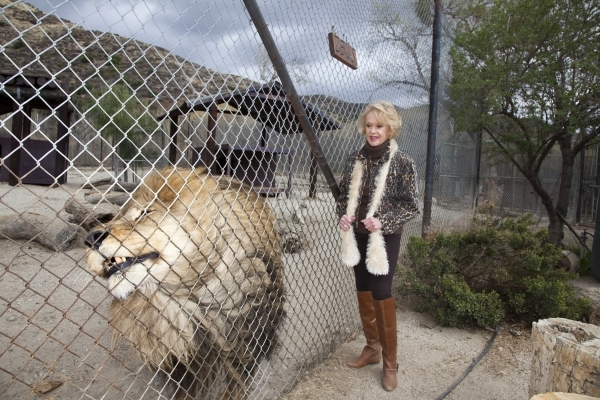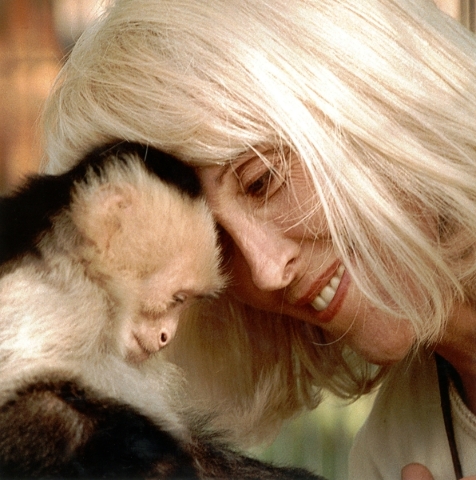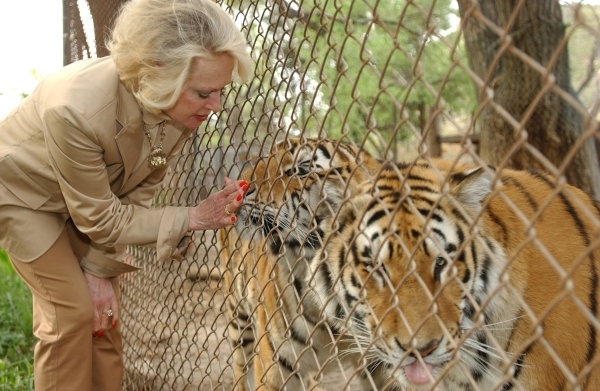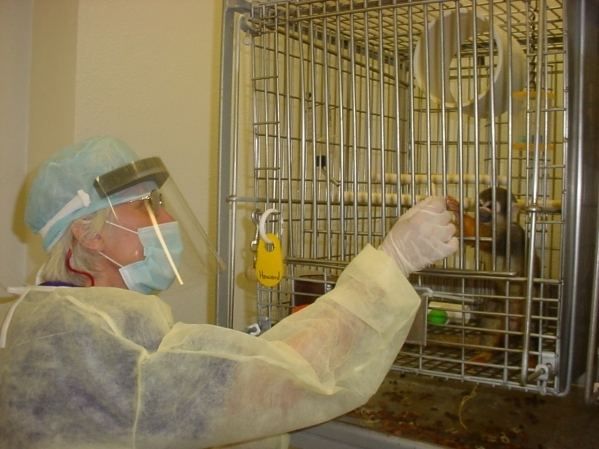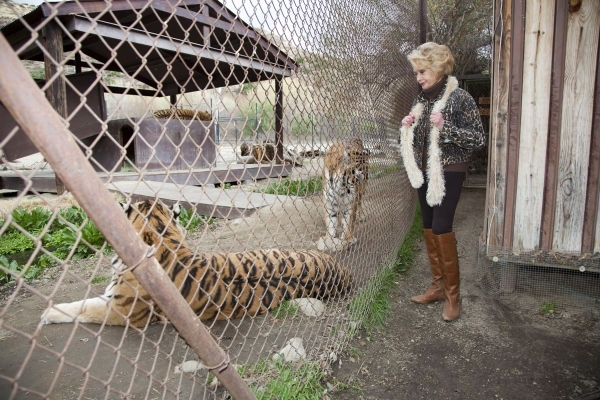Northwest-based group works to keep animal sanctuaries honest
Every day, there are countless abandoned, abused and neglected animals, and though more animal sanctuaries have been popping up to care for these creatures, a greater setback exists.
Some animal havens operate under the facade of a nonprofit sanctuary, and instead of rescuing animals, they prey on people's sympathy while exploiting those in their care, according to Vernon Weir, director of the American Sanctuary Association.
"There is no definition of the word 'sanctuary' in the law," Weir said. "Any place can call themselves a sanctuary; they don't even have to be a nonprofit. They can be involved in breeding and selling animals and call themselves a sanctuary just because they occasionally take in rescues."
To alleviate the problem, the association, based in northwest Las Vegas at 9632 Christine View Court, was founded in 1998 to set standards for animal care and housing through accreditation.
"Oftentimes, the public doesn't know where to look if they want to make a donation to a sanctuary. They can be easily duped into believing that a place is good," Weir said. "Our idea was to certify sanctuaries that don't breed. Breeding is really a contradiction if you're creating a sanctuary because there are too many animals that need a place to go. We feel that animal sanctuaries should be organized for the purpose of the animals, not to make money off the backs of animals."
Weir has spent more than 30 years as a professional in the animal protection movement. Along with three other board members, he oversees 35 sanctuaries that provide lifetime care to approximately 10,000 animals.
Although sanctuaries are not required to become accredited in order to operate, Weir said one of the advantages of being accredited is that the public is more willing to donate money, and it is easier to apply for grants.
Animal activist Tippi Hedren, who appeared in Alfred Hitchcock's "The Birds" and is the mother of actress Melanie Griffith, serves as the association's president.
"I got involved with ASA since the very beginning," Hedren said. "The animal business can be sleazy, and there are a lot of people that have no manners about anything."
Hedren spends most of her time at the Roar Foundation's Shambala Preserve, a big cat sanctuary near Acton, Calif. She became involved with the animal welfare movement after filming the movie "Roar" — dubbed the most dangerous film of all time — with live big cats.
As a result of the film, Hedren suffered a broken leg, and Griffith, who also acted in the film, had to receive facial reconstructive surgery, while Hedren's ex-husband Noel Marshall suffered from gangrene and multiple puncture wounds.
"What we did was horribly dangerous. We were just trying to raise awareness to the rapid decline of big cats," Hedren said. "Most people don't know how to properly care for exotic animals. They just buy them to use for financial exploitation, and it ends up being brutal for the animal. I can tell you countless stories of children being hurt by exotic animals. Big cats are very interested in children, and not in a good way. They look at them like a delicious little item."
Hedren continues to promote animal welfare through the association. She also hopes to introduce the Big Cats and Public Safety Protection Act in the near future. The act is an amendment to the Captive Wildlife Safety Act to phase out private possession of big cats in the United States.
The rest of the association's board members also run animal sanctuaries.
Jungle Friends Primate Sanctuary got its start in the northwest, but founder and executive director Kari Bagnall moved it to Florida to give the monkeys a better living environment. She continuously takes in primates retired from research labs. Many were born in the wild, captured for research and lived for decades in small cages, while others were born in captivity and have never been outside, she said.
"The goal of every sanctuary is to go out of business," Bagnall said. "For example, if we didn't have monkeys used in research or purchased as pets, then we wouldn't have the need for our sanctuary."
To become accredited by the association, sanctuaries must comply with a variety of high-quality animal care standards and housing requirements. The detailed application process involves a review of financial stability, fundraising procedures, board oversight, permits and licenses, organizational bylaws, educational materials and veterinary references.
Members of the association also visit all applicant sanctuaries to assure that their facilities and animal care merit endorsement. Member sanctuaries are not allowed to breed, sell, trade or use animals for commercial purposes.
Upon acceptance, an application fee of $50 is applied to the primary annual membership fee of $150, which is required thereafter for membership. Fees are nonrefundable.
"We're like a three-legged stool of academia," said association secretary Sybil Erden, who is the founder of the Oasis Sanctuary Foundation and co-founder of Cochise Canine Rescue in Arizona. "We're saving lives of animals, educating the public so they change their view on animals in our society, and ensuring animals have safe haven for their lifetime."
In addition to accreditations, the association works to find sanctuary placement for a multitude of homeless, abandoned, seized and abused exotic animals, non-releasable native wild animals, farmed animals and companion animals.
The nonprofit also provides members with guidance on fundraising, development and administration and assists with the financial costs of placing an animal when funds are available.
It is in need of financial donations to continue its work. The group's Animal Rescue Fund helps with the costs of transportation, food and veterinary expenses for animals needing sanctuary placement.
"We were put in a position to do something about it and make a difference," Hedren said. "People are slowly becoming more aware of the issues that animals face. Many sanctuaries have availability to take more animals, and that's a good sign for us. Animal abuse has to stop."
Visit asaanimalsanctuaries.org, call 702-804-8562 or email asarescue@aol.com.
— To reach North View reporter Sandy Lopez, email slopez@viewnews.com or call 702-383-4686. Find her on Twitter: @JournalismSandy.
More information
For more information or to find out how to start an animal sanctuary, visit asaanimalsanctuaries.org
Jungle Friends, junglefriends.org
Cochise Rescue, cochisecaninerescue.org



